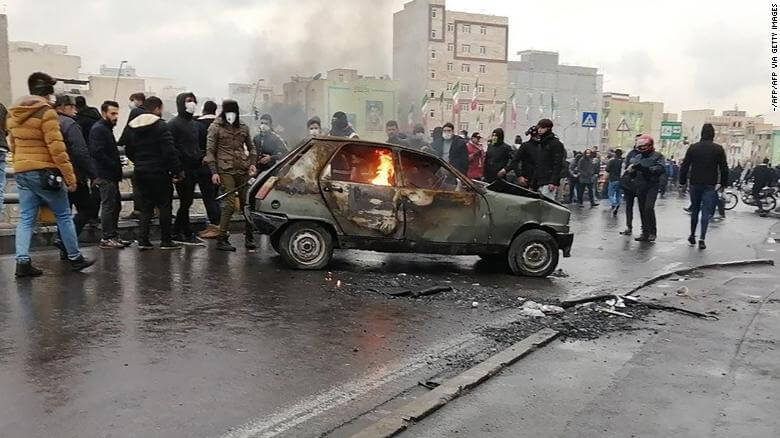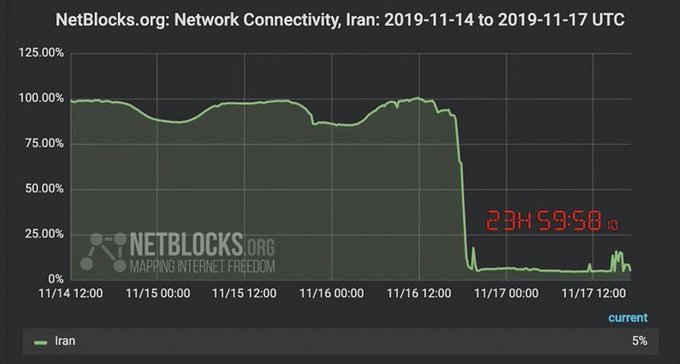DIGITAL LIFE

Iran shuts down country's internet access amid fuel hike protests
In what is being linked to crippling US sanctions on Iran's economy, the latter was forced to roll out a fuel rationing scheme as well as drastically reduce existing subsidies on gasoline, resulting in a steep price hike of between 50 to 300 percent.
Being home to the world's fourth-largest crude oil reserves, petrol in Iran is still cheaper than most other countries. However, the average household income of the country has been deemed by many to be too low to comfortably put up with the new prices.
"The price of a gallon of regular gas jumped to 57,000 rials ($1.71) from 40,000 rials ($1.20) per gallon, while the monthly subsidized ration for each private car has been reduced from 70 gallons to 16 gallons, after which the price of gas rises to 114,000 rials ($3.42) per gallon," notes CNN.
It also doesn't help that the country's underdeveloped public transportation system means that most people have to rely on personal conveyance to go around, and with petrol suddenly getting a lot more expensive, the latter mode of transportation has become exceedingly restricted as well.
As a result, many cities, including Iran's capital Tehran, have been subject to mass demonstrations, where people were seen abandoning their vehicles on highways with protesters blocking the roads.
Over the weekend, the government, in its attempt to 'control' the protests and prevent the worsening situation from leaking to the outside world, shut down the country's internet access, as observed by NetBlocks, an organization that monitors cybersecurity and internet governance around the world.
Update: It has now been 24 hours since #Iran implemented a near-total internet shutdown following hours of partial blackouts amid widespread protests.
The ongoing disruption constitutes a severe violation of the basic rights and liberties of Iraniansnetblocks.org/reports/intern…
1,023 people are talking about this
The first major drops in connectivity were observed by NetBlocks on Friday afternoon with a near-total shutdown in the following days in what has been regarded as "the most severe recorded in Iran since President Rouhani came to power, and the most severe disconnection tracked by NetBlocks in any country in terms of its technical complexity and breadth."
The country's state television reports the President blaming opponents and foreign enemies for the unrest and that the recent price hike will prevent "fuel smugglers" from exporting Iran's oil to neighboring countries. Meanwhile the government's opposition and analysts point to other factors, including a weak economy, rising unemployment, corruption and stringent US sanctions as being responsible for the current situation.
by Humza Aamir




No comments:
Post a Comment